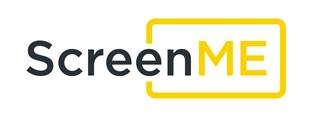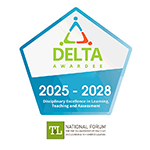The Best Way to Predict the Future is to Create it
Screen ME-Net
The objective of the ScreenME-Net project is to enhance excellence in screen media entrepreneurship scholarship at Tallinn University (TLU), to increase its networking position and visibility in this scholarly field, and to ensure sustainability of the impact of this project, mainly through the institutionalisation of a screen media entrepreneurship research hub, the so-called ScreenME-Hub, at TLU.
In terms of enhancing excellence in scholarship, the project aims at positively impacting all four pillars of scholarship (Boyer, 1990): discovery, integration, teaching and application. The objectives will be achieved through networking and collaboration activities with an interdisciplinary set of internationally-leading research institutions with strong expertise in entrepreneurship teaching and research as well as in various academic disciplines and scholarly areas of high relevance to understanding current dynamics in media industries and their wider societal effects. Not only do these partners have a high level of scientific capacity and international reputation, they are also well-integrated into the relevant international research and collaboration networks and have shown excellence in early stage researcher development as well as research management and administration skills. The experience, knowledge and authority of these leading institutions will provide a perfect guide to TLU in achieving sustainable and visible excellence in screen media entrepreneurship.

The overall objective of the ScreenME-Net project is to strengthen research capacity, enlarge the scope of the research partnership and enhance the reputation and attractiveness of Tallinn University (TLU) in screen media entrepreneurship scholarship through networking activities with internationally-leading research institutions. The main beneficiary at TLU are its Baltic Film, Media, Arts and Communication School (BFM) that offers BA and MA education in audio-visual media as well as its Centre of Excellence in Media Innovation and Digital Culture (MEDIT). The Centre studies cultural change and innovation processes that accompany emergent digital media and audio-visual forms. While significantly strengthening the field of screen media entrepreneurship scholarship at BFM and MEDIT, the project has also positive spill-over effects to other TLU schools, especially through an advancement of research management and administration skills as well as an increased visibility of the university as a whole. Through the project, the scientific capacity and the research profile of TLU and its staff will benefit from networking and collaboration activities with the project partners that, as a whole, will form the ScreenME-Net.
The project kicked-off virtually on February 4, 2021 and will run for 36 months. The project has received funding from the European Union’s Horizon 2020 research and innovation programme under grant agreement No 952156.
Under the leadership of ScreenME’s Vrije Universiteit Brussel, namely Hertiana Ranaivoson, the ScreenME partners published a policy brief on best practices in R&D networking. Based on the ScreenME activities and research, the partners identified what it takes to set up and nurture R&D networking, including the role of university support centres. They formulated recommendations for universities and policy makers to make use of the potential that R&D networking holds, not only for improved research and education but also by becoming a relevant and impactful stakeholder in the development and functioning of local and regional innovation ecosystems. To read Policy Brief on Best Practices of R&D Networking, please click here.
The end of 2023 brought the conclusion of the ScreenME-Net project. Reflecting on the three-year project we note several highlights:
- We successfully united scholars who hadn't collaborated before, harnessing interdisciplinary forces to better comprehend the media industries and their underlying trends.
- We engaged in discussions about teaching, sharing valuable tips, exercises, and experiences - an endeavour we don't often undertake.
- We delved into research management and project application writing, exchanging knowledge and experiences.
- We prioritized discussions about early-stage researcher development - a crucial topic that is sometimes overlooked or not spoken about in international teams of advanced scholars.
- We explored university-external stakeholder networking collaboration - an area that deserves more attention.
Importantly, our conversations led to concrete actions. Among others, we organised early-stage researcher seminars and workshops, and we fostered connections among research managers, facilitators, and project writers. Moreover, we published reports that serve as reference points for the future. These include:
- A new syllabus for teaching entrepreneurship to media students at Tallinn University.
- A report with tips and tricks for early-stage researcher development.
- A report sharing insights and recommendations for industry collaboration and networking experiences.
- A policy brief on best practices of R&D networking.
- A handbook for project application writing.
Looking ahead, we have exciting plans:
- A special issue in the Journal of Media Business Studies.
- ScreenME members will continue to collaborate in ongoing projects, including Horizon Europe - CresCine, Chanse - PSM AP, and hopefully new projects that were either already submitted (Chanse, Cost, MSCA Doctoral Network) or that are in the planning.
- The continuation of the ScreenME Podcast by Ulrike Rohn.
- The ScreenME website and social media (Facebook and LinkedIn) will remain active.
Since the project's inception, entrepreneurship has gained prominence at Tallinn University (project lead), with BFM playing a key role in this. Collaborating with the Institute of Humanities, project lead Ulrike Rohn is developing a seminar series on entrepreneurial mindset for PhD students across the university. Additionally, she is playing a key role in the entrepreneurial activities within the framework of FilmEU - an EU-wide initiative to establish a European University for Film and Media Arts. The ScreenME project has opened doors to numerous opportunities.
outputs
Research & Stakeholder Collaboration:
- Networking and Research Collaboration with the Screen Media Industry - Lessons Learned from the University Perspective
- Policy Brief on Best Practices Of R&D Networking
Teaching Screen Media Entrepreneurship:
Early-Stage Researcher Development Support:
Communication & Dissemination:
Screen Me.Net PROJECT NEWS
Keep up to date with project developments, activities and events. Below are links to the ScreenME.Net articles as seen in the News section of our website.
- New Year ... New Projects - Two New Projects Kick-Off. 15 February, 2021
- ScreenMe.Net Project - Hincks Hosts Online Workshop. 13 September, 2021
- ScreenMe.Net Project International Workshop - Screen Media Entrepreneurship Research and Practice. 27 October, 2021
- Read All About It ..... ScreenMe Project Newsletter: First Issue Out Now! 05 November, 2021
- ScreenMe-Net Project Partner Meeting - Stakeholder Engagement in Teaching WP2 T2.1. 12 November, 2021
- ScreenMe Project Webinar Series for Early Stage Researchers - Spotlight on Entrepreneurship Research: April 8, 2022. 31 March, 2022
- Hincks Presents ....... Screen Me Project Webinar. 08 April, 2022
Screen Me.Net Newsletters
In October 2021, ScreenME launched the first in a series of newsletters. The newsletters provide information on the project, updates on project activities, details on upcoming events and other interesting news.
- Issue 1: The first issue provides an overview of the project in general, the project partners, the buddy system and information on the value proposition workshops. 29 October 2021.
- Issue 2: This issue presents summaries of the results of the many research and networking activities that have taken place since the publication of Issue 1. October 2022.
- Issue 3: The final ScreenMe newsletter! In this final newsletter, the ScreenMe consortium shares their journey for the final year. October 2023.
Partner locations
The lead partner is Tallinn University (TLU), Tallinn, Estonia with partners from:
- Munster Technological University (MTU), Hincks Centre for Entrepreneurship Excellence, Cork, Ireland;
- Technical University Ilmenau (TUIL_IFMK), Ilmenau, Germany;
- Lappeenrannan-Lahti University of Technology (LUT), Lappeenranta, Finland;
- Jönköping International Business School and its Media Management and Transformation Centre (JIBS_MMTC), Jönköping, Sweden;
- Aarhus University (AU_CMIP), Aarhus, Denmark;
- Vrije University (VUB_SMIT), Brussels, Belgium.



